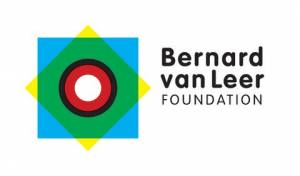Early childhood matters!
Babies and young children, especially the most disadvantaged, deserve a good start in life. A nurturing environment around young children is the foundation for a healthy, creative and peaceful society, in addition to individual fulfilment.
What is the aim of our Early Childhood Matters project?
A Bernar Van Leer Foundation works to create a caring environment through research and practical programmes. Now you can hear the latest research in English, in three themes, Róbert Alföldi in his voice. The aim of our Early Years Matters project is to raise awareness among parents of young children, their professionals and policy makers about important issues such as air pollution, child-friendly urban planning and the role of fathers in the family, in a way that is easy to understand. For the project, we translated the articles from the Bernard van Leer Foundation and asked Robert Alföldi to read them.
Why are these topics important?
We believe that with the right information, we can make good decisions as professionals and as individuals.
Listen to the latest research in a few minutes!
Clean air on prescription: the impact of air pollution on children.
- The link between poorer child health and air pollution is becoming increasingly clear. Research has shown a link between the number of pregnant women living in highly polluted environments and the number of premature and underdeveloped babies and stillbirths.
- Further research has also shown links between air pollution and infant mortality, neurodevelopmental disorders, increased risk of childhood cancers (especially leukaemia), worsening of childhood asthma and other serious respiratory diseases.
(Authors: Julia Gorman, Marie-Noel Bru ne Drisse)
Child-friendly streets - a child-friendly urban environment.
- Research shows that the urban environment can have an impact on children's development and cognitive abilities, and can be a source of great pleasure for both children and the adults who care for them.
- It is increasingly important to think about people, and especially children, when designing the urban environment.
- It is also important that decision-makers and representatives of the professions concerned pay attention to this and give local communities as much say as possible. Because although we see different streets all over the world, the principles of child-friendly street design are the same everywhere and are equally important everywhere.
(Authors: Skye Duncan, Ankita Chachra, Annie Peyton)
Loving fathers, happy children: flexible gender roles.
- We present one initiative in Uganda and one in Rwanda that focus specifically on fathers. These programmes also show how much it means when fathers are involved in the care of children. The results also show that these methods can be successfully applied to other development programmes for young children.
- Both initiatives are based on the idea of flexible gender roles. Prevailing social expectations often have a strong influence on family life, suggesting that men can control women or discipline children in harsh ways.
- These two initiatives seek to change these standards and thus redress inequalities. On the other hand, it focuses on positive role models and thus seeks to change the male role towards that of a loving father, a supportive and equal partner.
- Some research shows that when fathers play a positive role in parenting, children become more emotionally balanced, integrate more easily into the community and develop more quickly mentally. Other research shows that this approach reduces future violent behaviour.
Download the summaries and share them with your colleagues!
Child-friendly streets
Loving fathers
Clean air on prescription
To receive more content like this, please sign up REYN member!
If you liked this content, EZ may also be of interest to you
The translation of the articles and the videos were made possible thanks to the Bernard Van Leer Foundation and the International Step by Step Association supported by.


